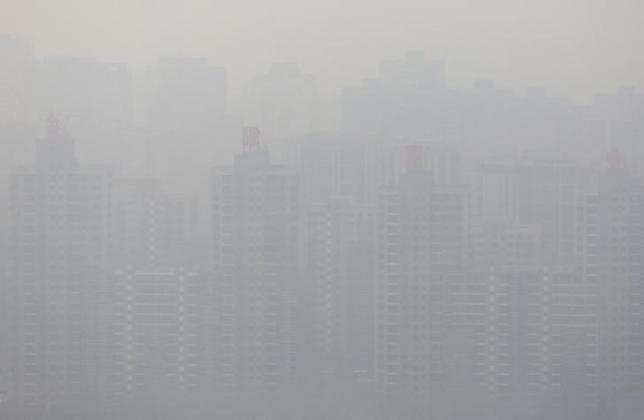China ordered at least 255 Shanghai-based industrial facilities, including part of a major oil refinery operated by Sinopec Corp, to shut for 14 days to reduce pollution ahead of the G20 summit, according to an official document reviewed by Reuters.
The document, issued by the Shanghai Environment Protection Bureau, has ordered a wide range of companies from power and petrochemical plants to logistics firms to shut down between Aug. 24 and Sept. 6 for the upcoming G20 meet in Hangzhou.
Authorities in neighboring Zhejiang and Jiangsu province are set to issue similar orders to limit air pollution and safety hazards within a 300 km radius from Hangzhou, according to industry and government officials.
China has previously shut down factories and limited the operation of heavy equipment ahead of high-profile diplomatic and sporting events – such as meetings of the Asia-Pacific Economic Cooperation and the Beijing Summer Olympics of 2008 – to cut the choking smog that afflicts many of its cities.
“Longer-term China needs to work out a market-based approach to tackle pollution rather than an ad-hoc order. Apart from social responsibilities, business has its profit and loss to take care,” said Jing Chunmei, a researcher with China Center for International Economic Exchanges.
The G20 summit, hosted in the first week of September, has become China’s biggest diplomatic event of the year and is expected to gather together world leaders like Chinese President Xi Jinping and U.S. President Barack Obama.
Shanghai Petrochemical Corp, a subsidiary refinery of state refiner Sinopec Corp, will reduce its capacity by 50 percent, or about 120,000 barrels per day (bpd), for the G20 event during those two weeks, the document from the environment bureau said.
Coal-fired power plants in the area that do not meet emissions standards will be fully closed over the two weeks, it also said, and the usage of heavy machinery will be reduced by 30 percent across Shanghai.
An official with Sinopec’s Jinling Petrochemical Corp, another major refinery based in the city of Nanjing in neighboring Jiangsu province, said his firm was also asked by local authorities to “appropriately reduce throughput”, but was not given any specific reduction size.
The ruling came from local governments, rather than from Sinopec Corp, the official said.
Shanghai Petrochemical, according to the environment bureau’s document, will be closing a 120,000 bpd crude unit, a 3.9 million tonne-per-year (tpy) residue hydrocracking unit, a 3.5 million tpy catalytic cracking unit, and another dozen or so secondary refining facilities.
OTHER REFINERIES, INDUSTRIES
Sinopec also operates in the vicinity the 440,000 bpd Zhenhai refinery, 270,000 bpd Shanghai Gaoqiao refinery and 250,000 bpd Yangzi Petrochemical Corp. A spokesman for Sinopec said the company was not immediately able to comment.
The 255 factories based in Shanghai, about 200 km from Hangzhou, cover sectors like chemicals, building materials, pharmaceuticals and printing, according to the document.
Operation of heavy machinery in the Jinshan district will be cut in half during the summit period, and sailings of dry bulk ships below 200 tonnes, oil tankers above 600 tonnes and all chemical tankers will be suspended.
The government is offering no subsidies for the shutdowns, according to four plants contacted by Reuters.
“We will try to reschedule plant maintenance to that two weeks to minimize the production loss,” said Shi Yan, a manager at Budenheim Fine Chemicals (Shanghai) Co. Ltd.
Other areas, including the port city Ningbo, have also issued lists of factory shutdowns ahead of the G20 summit in addition to the closures set for Shanghai, according to an official at the Ningbo Environmental Bureau.
Source: REUTERS











